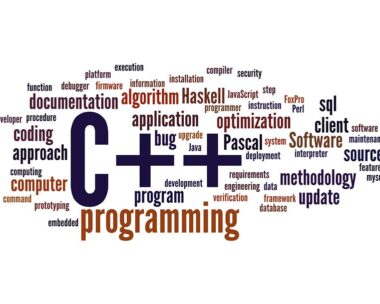Web Development A Beginner’s Guide to Choosing the Right Programming Language
A Beginner’s Guide to Choosing the Right Programming Language. Programming languages are the backbone of modern technology, enabling humans to communicate instructions to computers. They serve as a medium through which developers create software, websites, applications, and much more. Choosing the right programming language is crucial for anyone embarking on a journey into the world of coding.
2. Understanding Different Types of Programming Languages
High-level vs. Low-level Languages
High-level languages, like Python and JavaScript, are closer to human language and are easier to read and write. In contrast, low-level languages, such as Assembly language, interact more directly with the computer’s hardware and are less human-readable.
Compiled vs. Interpreted Languages
Compiled languages, like C++ and Java, are translated into machine code before execution, resulting in faster performance. Interpreted languages, such as Python and Ruby, are executed line by line by an interpreter, making them easier to debug but generally slower in performance.
3. Factors to Consider When Choosing a Programming Language
Project Requirements
Consider the nature of your project. Are you developing a web application, a mobile app, or a data analysis tool? Each project may require a different set of languages and tools.
Learning Curve
Evaluate the complexity of the language and your familiarity with it. Some languages, like Python, have a gentle learning curve and are suitable for beginners, while others, like C++, may require more time and effort to master.
Community Support
Check the availability of online resources, forums, and communities related to the language. A strong community can provide valuable support and resources for learning and troubleshooting.
Job Market Demand
Research the demand for developers with skills in a particular language. Languages like JavaScript and Python are widely used and offer ample job opportunities in various industries.
4. Overview of Popular Programming Languages
Python
Known for its simplicity and versatility, Python is widely used in web development, data analysis, machine learning, and more.
JavaScript
As the language of the web, JavaScript powers dynamic and interactive websites and is essential for front-end and back-end web development.
Java
Java is a robust and platform-independent language commonly used for building enterprise-level applications, Android apps, and large-scale systems.
C++
A powerful and fast language, C++ is often used in game development, system programming, and performance-critical applications.
Ruby
Ruby is known for its elegant syntax and developer-friendly features, making it ideal for web development and prototyping.
5. Matching Your Goals with the Right Language
Web Development
For web development, languages like JavaScript, Python, and Ruby are popular choices due to their flexibility and extensive frameworks.
Data Science and Machine Learning
Python is the preferred language for data science and machine learning due to its rich ecosystem of libraries and tools, such as NumPy, Pandas, and TensorFlow.
Mobile App Development
Java and Kotlin are commonly used for Android app development, while Swift is the language of choice for iOS app development.
Game Development
C++ is widely used in game development for its performance and control over hardware resources, although languages like C# and Unity are also popular for game development.
6. Resources for Learning Programming Languages
Online Tutorials and Courses
Platforms like Coursera, Udemy, and Codecademy offer a wide range of tutorials and courses for learning programming languages.
Books
Books are an excellent resource for in-depth learning and understanding of programming concepts. Look for beginner-friendly books and resources tailored to your chosen language.
Coding Bootcamps
Coding bootcamps provide immersive learning experiences and hands-on training in programming languages, often leading to accelerated career opportunities.
7. Conclusion
Choosing the right programming language is a crucial step for anyone aspiring to become a developer. By considering factors such as project requirements, learning curve, and job market demand, you can make an informed decision that aligns with your goals and aspirations in the world of coding.
8. FAQs (Frequently Asked Questions)
1. Which programming language is best for beginners?
- Python is often recommended for beginners due to its simple syntax and readability.
2. What is the most widely used programming language?
- JavaScript is one of the most widely used languages, especially for web development.
3. How long does it take to learn a programming language?
- The time it takes to learn a programming language varies depending on factors such as prior experience and the complexity of the language. However, with consistent practice, one can become proficient in a language within a few months.
4. Is it necessary to learn multiple programming languages?
- While it’s not necessary to learn multiple languages, having knowledge of multiple languages can broaden your skill set and make you a more versatile developer.
5. Are there any programming languages that are becoming obsolete?
- While some languages may become less popular over time, it’s rare for a language to become entirely obsolete. However, staying updated on industry trends can help you identify which languages are in high demand. A Beginner’s Guide to Choosing the Right Programming Language.



